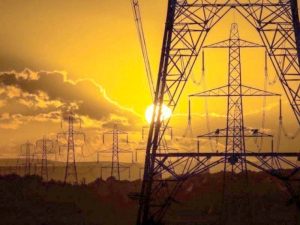Slightly higher electricity prices in Pakistan.
Consumers would see a decrease of Rs0.10 per unit compared to the rate in effect during the month of August 2022.

ISLAMABAD:
On Wednesday, the National Electric Power Regulatory Authority (Nepra) suggested an increase in the power tariff of Rs0.09 per unit due to fuel cost adjustments (FCAs) for the month of September 2022.
An intervenor at the October 25 public hearing asked about how K-Electric differs from power distribution companies (Discos’) monthly fuel adjustment processes (KE).
In September, the electricity regulator cut the power cost for KE customers by Rs4 per unit due to FCAs but signaled a hike for Disco customers.
Despite the fact that the per-unit cost of electricity from KE power plants was more than Rs37, this was the case. In response, Nepra officials stated that KE and the Discos used various techniques to alter prices due to fuel price changes.
Meanwhile, the power regulator announced in a statement that a public hearing on September’s FCA of Discos was held at the Nepra offices.
Nepra Chairman Tauseef H. Farooqui presided over the meeting, and other members of the authority were present as well.
It was requested that the price of electricity be raised by Rs0.20 per unit, which was presented by the Central Power Purchasing Agency (CPPA). The power regulator Nepra determined the FCA to be Rs0.09 per unit based on preliminary data analysis.
The previous price hike, of Rs0.19 per unit, was temporary and applied only in August 2022. As a result, instead of charging customers Rs0.10 more per unit as they did following the price increase in August 2022, they will now only need to do so.
To learn more about NEPRA’s price cut on KE, read the following:
Nepra said the adjustment would take effect in one month and affect all Disco customers other for those with a lifeline or using electric vehicle charging stations.
After further review of the data, the agency promised to deliver a thorough decision. Nepra representatives questioned the power facilities’ compliance with the merit order on fuel usage during the open hearing.
The merit order mandates that CPPA run its power plants on less expensive fuel first before switching to more expensive fuel.
There was some fluctuation in the system’s power load, according to NTDC officials.
So, they had to run faster-responding power plants regardless of merit order, only to keep the system from collapsing.
When asked about RLNG-based power plants, NTDC representatives defended their use by claiming that the facilities were more responsive because of their efficiency. They alleged, however, that they were not supplied with enough RLNG to keep the generators operating.
According to the officials, the power plants need 800 mmcfd RLNG but were only given 415 mmcfd RLNG.
Because of this, the corporation had little choice but to operate its costly fossil fuel-based power facilities.
When asked why electricity plants were being shut down, NTDC explained that it was necessary to do so in order to adhere to the merit order. The reduction in power on high-loss feeders caused the shutdown of several power plants.
Coal-based powerplants, the authorities stated, needed payments of $80–$85 million to obtain the imported coal needed to run them, despite the central bank’s limits on the creation of Letters of Credit (LCs).
Although the central bank increased the LC limit, they still had trouble importing the power plants’ necessary equipment due to the limitations in place.










































